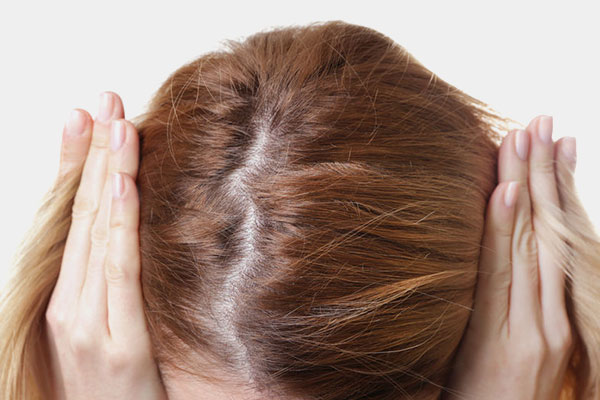Hair loss is a common concern that affects individuals of all ages and backgrounds. Whether it’s due to genetics, hormonal changes, stress, or environmental factors, understanding how to prevent hair loss is crucial for maintaining a healthy mane. In this article, we will explore various strategies, lifestyle changes, and treatments that can help you keep your hair strong and vibrant.

Understanding Hair Loss
The Basics of Hair Growth
Hair growth occurs in cycles, with each strand going through phases of growth (anagen), rest (telogen), and shedding (catagen). On average, it’s normal to lose about 50 to 100 hairs daily. However, when hair loss exceeds this amount, it can lead to noticeable thinning or bald patches.
Types of Hair Loss
There are several types of hair loss, each with its own causes and characteristics:
- Androgenetic Alopecia: Commonly known as male or female pattern baldness, this hereditary condition leads to gradual thinning of hair.
- Alopecia Areata: An autoimmune disorder that causes sudden hair loss in patches.
- Telogen Effluvium: Temporary hair loss often triggered by stress, hormonal changes, or medical conditions.
- Traction Alopecia: Hair loss resulting from tight hairstyles that pull on the hair follicles.
Understanding the type of hair loss you are experiencing is essential for determining the most effective prevention strategies.
Nutritional Support for Hair Health
Balanced Diet
A nutritious diet plays a vital role in maintaining healthy hair. Incorporating a variety of vitamins and minerals can significantly impact hair growth and strength. Key nutrients include:
- Proteins: Essential for hair structure, proteins can be found in lean meats, fish, eggs, and legumes.
- Iron: Important for oxygen transport to hair follicles, iron-rich foods include spinach, lentils, and red meat.
- Vitamins A and C: These vitamins support sebum production and collagen formation, respectively. Sources include carrots, citrus fruits, and leafy greens.
- Omega-3 Fatty Acids: Found in fish, flaxseeds, and walnuts, these healthy fats nourish hair follicles.
Supplements
If your diet lacks certain nutrients, consider taking supplements. Biotin, zinc, and vitamin D are popular choices for promoting hair health. However, consult with a healthcare professional before starting any new supplement regimen.
Gentle Hair Care Practices
Avoiding Harsh Treatments
Using harsh chemicals or excessive heat can damage hair and lead to breakage. To protect your strands:
- Choose Gentle Products: Opt for sulfate-free shampoos and conditioners that suit your hair type.
- Limit Heat Styling: Reduce the use of hair dryers, curling irons, and straighteners. When you do use heat, apply a heat protectant spray.
Proper Washing Techniques
How you wash your hair can also affect its health. Follow these tips for a gentle hair care routine:
- Frequency: Avoid washing your hair daily; instead, aim for 2-3 times a week to maintain natural oils.
- Massage the Scalp: Gently massaging your scalp while shampooing can stimulate blood circulation and promote hair growth.

Stress Management
The Impact of Stress on Hair Loss
High-stress levels can lead to hair loss through various mechanisms, including hormonal changes and inflammation. Managing stress is crucial for overall health and hair vitality.
Stress-Relief Techniques
Incorporate stress-reducing practices into your daily routine:
- Mindfulness and Meditation: Engage in mindfulness exercises or meditation to calm your mind.
- Physical Activity: Regular exercise can help reduce stress and improve overall well-being.
- Adequate Sleep: Prioritize sleep to allow your body to recover and rejuvenate.
Protective Measures for Hair
Shielding from Environmental Damage
Environmental factors such as UV rays, pollution, and chlorine can harm your hair. To protect your locks:
- Wear Hats: Use hats or scarves to shield your hair from sun exposure.
- Use Protective Products: Apply leave-in conditioners or serums that offer UV protection.
Avoiding Tight Hairstyles
Tight hairstyles can lead to traction alopecia, causing hair to weaken and fall out. Opt for looser styles that do not pull on the hair follicles.
Scalp Health
Importance of Scalp Care
A healthy scalp is essential for hair growth. Regularly exfoliating and cleansing your scalp can help remove buildup and promote a conducive environment for hair growth.
Scalp Massages
Incorporating scalp massages into your routine can enhance blood circulation and stimulate hair follicles. Use your fingertips to gently massage your scalp for a few minutes daily.
Best selling hair growth products:
Innovative Treatments
Minoxidil and Finasteride
For those experiencing significant hair loss, medications like minoxidil (Rogaine) and finasteride (Propecia) can be effective. Minoxidil is available over-the-counter and is applied topically, while finasteride requires a prescription and is taken orally.
Platelet-Rich Plasma (PRP) Therapy
PRP therapy involves drawing a small amount of your blood, processing it to concentrate the platelets, and injecting it into the scalp. This treatment can stimulate hair growth and improve hair density.
Hairegen Device
The Hairegen device is a cutting-edge tool designed to combat hair loss. Utilizing low-level laser therapy (LLLT), it stimulates hair follicles and promotes hair regrowth. Regular use of this device can enhance the effectiveness of other treatments and contribute to healthier hair.
Regular Trims and Maintenance
Importance of Regular Haircuts
Scheduling regular trims can help prevent split ends and maintain the overall health of your hair. Aim for a trim every 6-8 weeks to keep your hair looking its best.
Hair Care Routine
Establishing a consistent hair care routine is essential for maintaining healthy hair. This includes using the right products, avoiding excessive styling, and protecting your hair from damage.
When to Seek Professional Help
Consulting a Dermatologist
If you notice sudden or severe hair loss, it’s essential to consult a dermatologist. They can assess your condition, identify underlying causes, and recommend appropriate treatments tailored to your needs.
Understanding Underlying Conditions
Certain medical conditions, such as thyroid disorders or autoimmune diseases, can contribute to hair loss. A healthcare professional can help diagnose these issues and provide guidance on managing them.
Conclusion
Preventing hair loss requires a multifaceted approach that includes proper nutrition, gentle hair care, stress management, and innovative treatments. By implementing these strategies, you can promote healthy hair growth and maintain your luscious locks for years to come. Remember, consistency is key, and seeking professional advice when needed can make a significant difference in your hair health journey.
Incorporating these practices into your daily routine will not only help you understand how to prevent hair loss but also empower you to take control of your hair health. Embrace these changes, and enjoy the confidence that comes with a full, vibrant head of hair.
Best selling hair growth products:





